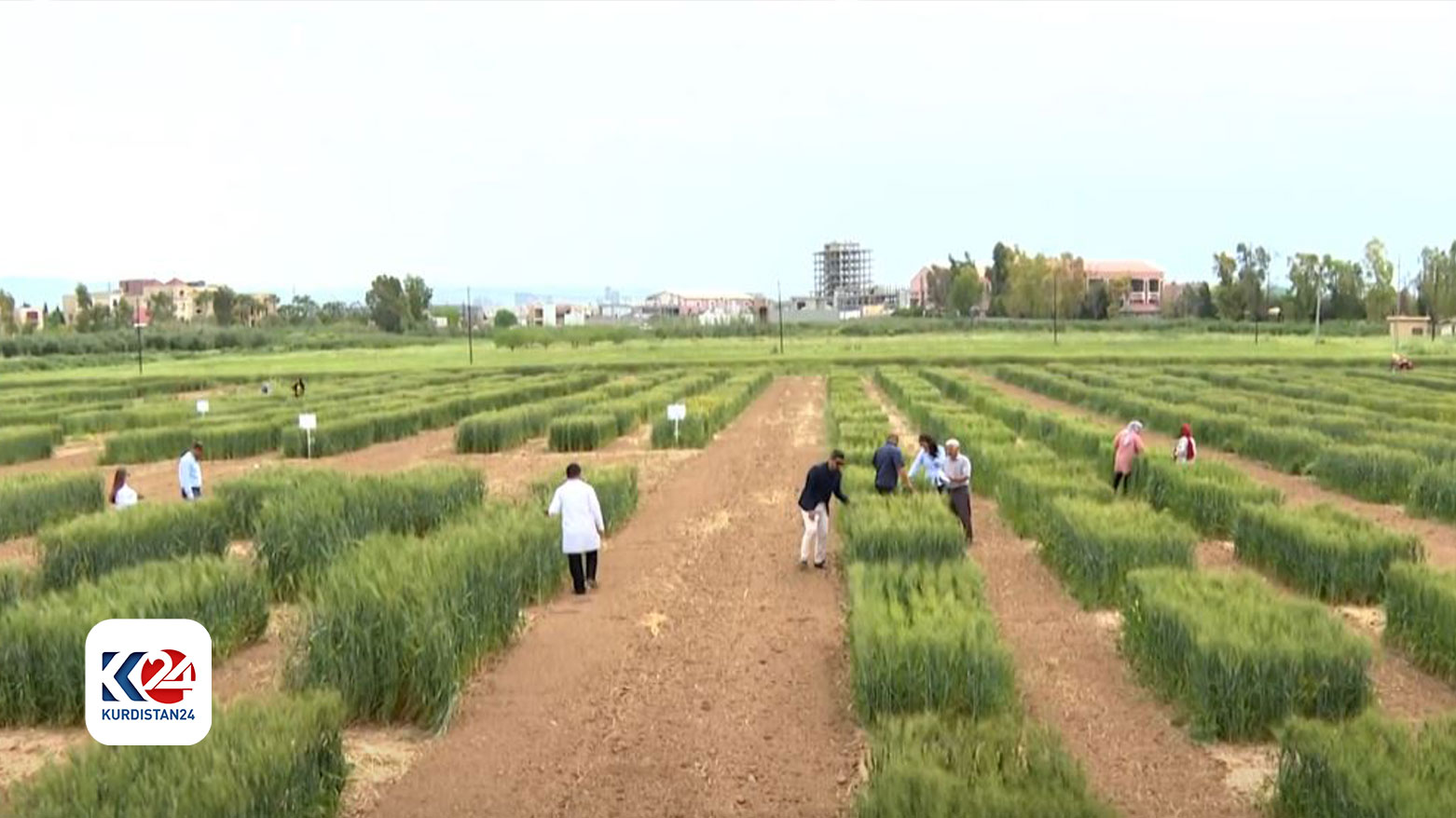Wheat, barley research project underway in Erbil
Led by Hiwa Haider, head of the soil and laboratory department, the project aims to study various aspects of wheat and barley, including height, leaves, seeds, diseases, and soil composition, with the assistance of experts.

ERBIL (Kurdistan 24) - A comprehensive research project focusing on wheat and barley cultivation is currently underway in Erbil, covering an area of 15 acres and involving the planting of over 300 varieties.
Led by Hiwa Haider, head of the soil and laboratory department, the project aims to study various aspects of wheat and barley, including height, leaves, seeds, diseases, and soil composition, with the assistance of experts.
According to Haider, the research is crucial for collecting essential data and monitoring the health of the crops. Any signs of disease will be promptly addressed to ensure the well-being of the plants.
One of the key objectives of the research is to identify wheat and barley varieties that demonstrate resilience against common agricultural pests, particularly rust disease.
By evaluating different strains, researchers hope to pinpoint those with the highest resistance, ultimately aiding farmers in their crop selection.
Conducted annually by the Erbil Directorate of Agriculture, the research project sources wheat and barley varieties from renowned distribution centers worldwide.
These varieties are obtained from centers include places such as Smith and ICARDA, known for their suitability to the local climate and soil conditions.
Abdulsamad Mohammed, director of agricultural research in Erbil, emphasized the long-term nature of the project, estimating that it will take more than 10 to 12 years to identify optimal wheat varieties capable of withstanding agricultural challenges.
Once identified, these varieties will undergo registration with the federal Government, facilitating their accessibility to farmers across the region.
